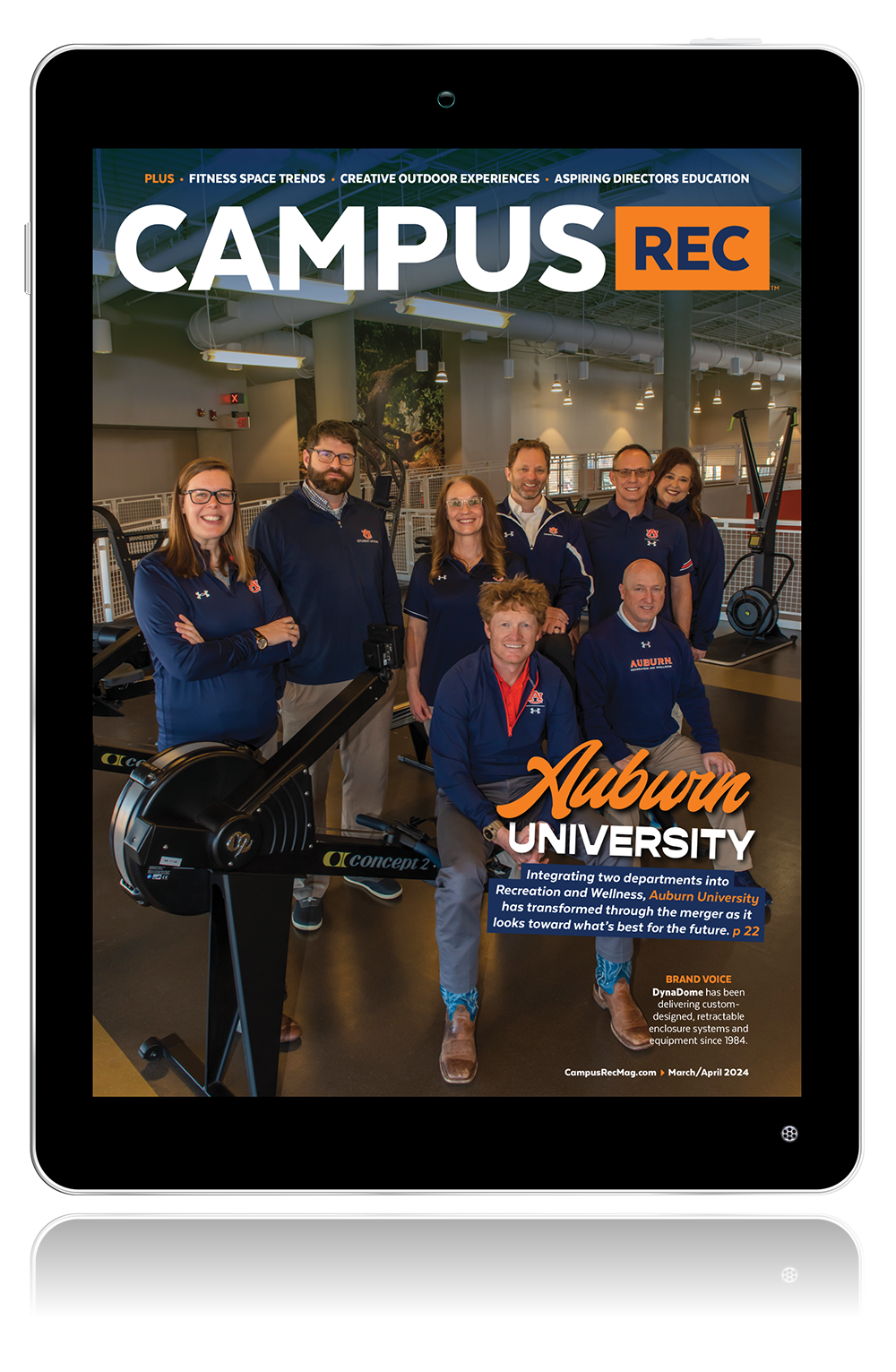Prior to my position at Loyola University Maryland, I would have labeled myself as an aquatic professional. But having the opportunity to engage in my campus and become involved in opportunities in and outside of my campus has shifted my focus to labeling myself as a student affairs professional.
When I look at my future working in higher education, my aspirations are now to impact change on a campus community scale rather than in my area of expertise/experience. However, when dreaming big it is critical to begin planning how to gain the competencies to become a campus leader while still performing your day-to-day job. Here are some ways in which my experience at Loyola University Maryland has given me the opportunity to grow outside of my job description and improve competencies.
Meet New People in Different Departments
Small campuses means less professionals, and with less professionals comes more opportunities to network and engage with your colleagues, or so you would think. The truth is it’s up to you to put yourself out there, visit different offices and explain your passions.
When arriving at Loyola University Maryland, I made it a goal every time I made it to campus that a trip to an office in the student development division would occur. It was an intentional part of my campus visit to ensure I was a friendly face, even if all I did was stop in to say hello. These relationships built overtime, and have allowed me to begin sharing my passion with other members of the division and create my campus persona. Coming to campus, I may have been the new “aquatics guy” but now my division knows my passion is to engage the community through play. I constantly explain the pool is for more than lap swimming and that our recreation center is more than lifting weights — it is about community and development.
Tell Your Supervisor All Your Career Goals
After I found a growing passion for student affairs and recreation management, I shared with my director I wanted more opportunities to supervise and develop areas outside of aquatics. By sharing this goal with my director, he was able to restructure aspects of our department so I could supervise a graduate assistant, and oversee facility operations and facility risk management. Expanding what I was doing in a program area into the day-to-day of the recreation center has been a rewarding experience and shows me my department truly cares about my development. Further, with this knowledge of my goals, my director has given me opportunities to chair a search committee and get involved in campus trainings outside of our department. This may not be possible in all departments, but there are opportunities that can be created or shared so you feel you are continually developing.
Be Willing to do Something Extra
One of the great things about a small campus is administrators are constantly looking for opportunities to collaborate. Recently, I have become involved in Bystander Intervention Training for our freshman class, as well as serving as a mentor for a class of freshman along with a faculty member and student leader. This engagement with students has allowed students to see campus outside of my facility and understand my presence is to provide a safe and inclusive environment. When I walk through the campus, students now see me as more than the pool guy — they see me as a resource. Seeking out opportunities is important and learning about your campus programs is vital to ensure you continue to be a growing resource.
Create the Community for Students
Just because we want to mentor students or be a resource for them does not mean that they will come flocking to you. It is up to us to show our students why we are a valuable resource for them. At my current institution, there is a volunteer training to become a safe zone for students who identify as members of the LGBTQIA+ community. By completing the training, you get placed on a list of individuals who are safe zone certified and get a sticker for your office window.
However, this did not send students to my office — in fact no one has yet to come to my office regarding their experience as members of the LGBTQIA+ community. When conducting trainings on campus or with my student staff, I make it an effort to explain not only that I am safe zone on campus but incorporate trainings to help others understand how I can be a resource. By building these relationships with students, I have seen an influx of individuals who will stop by just to say hello or will speak to me on campus to see how I am doing. Building this community with students is an important aspect of being a student affairs professional.
Campuses are ever changing, but it is up to us as professionals to ensure they are a safe and inclusive environment. If you want to see change, seek it out. Discover how you can best improve your campus and move forward with that idea. So often we can become bogged down in the day-to-day and forget what it was that made us choose this career.










